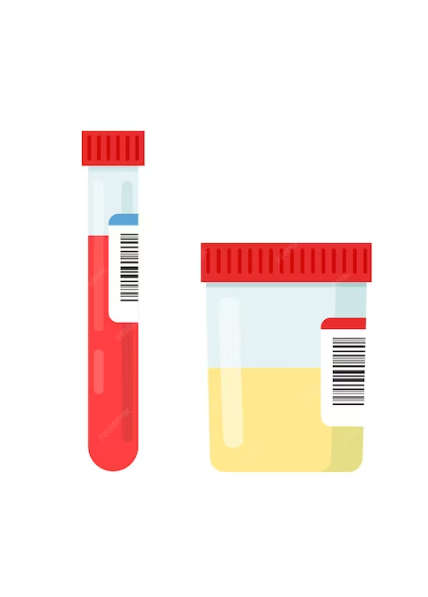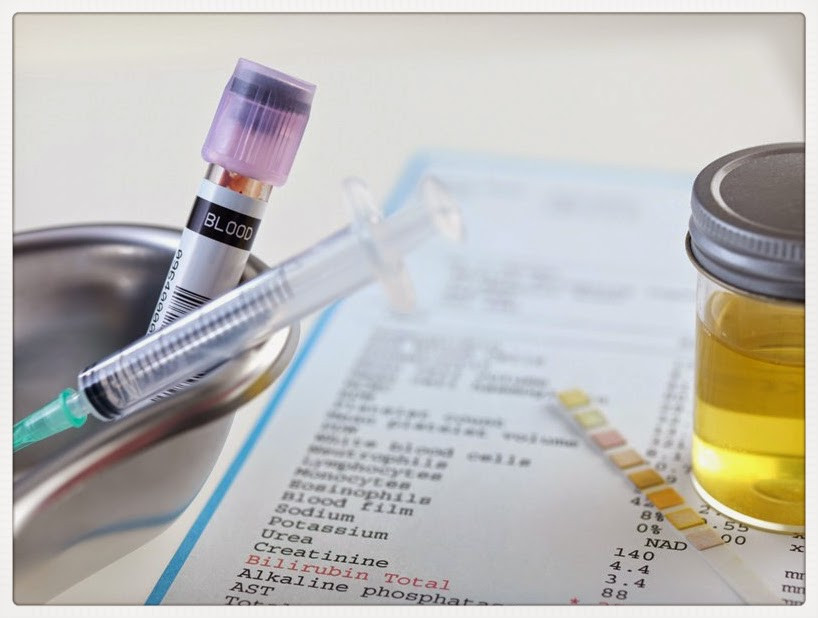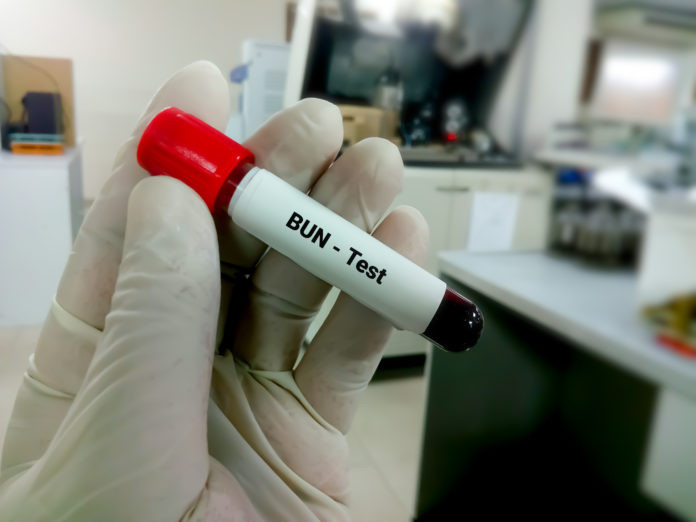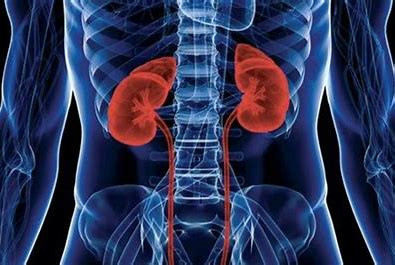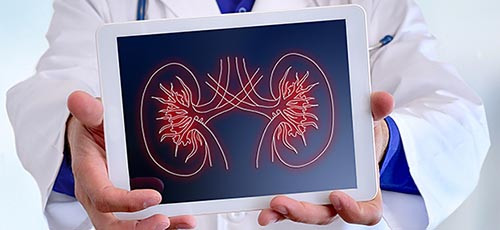Definisi
Pemeriksaan creatinine clearance atau bersihan kreatinin adalah pemeriksaan lama yang dulunya dipakai untuk memeriksa fungsi ginjal Anda. Kreatinin adalah suatu produk sisa metabolisme dari aktivitas otot dan dari protein daging yang Anda konsumsi. Ginjal yang sehat akan mengeluarkan kreatinin dari darah lalu kreatinin tersebut dikeluarkan dari tubuh melalui urine.
Pemeriksaan ini memakai sampel darah serta sampel urine yang dikumpulkan dalam periode 24 jam. Kedua sampel tersebut akan diperiksa dan dibandingkan hasilnya. Dari sampel darah dan urine, akan dilihat seberapa banyak kreatinin yang bisa disaring ginjal selama 24 jam dan apakah ginjal bisa melakukan fungsinya dengan baik. Umumnya, kadar kreatinin yang ditemukan tidak normal pada sampel bisa menandakan adanya suatu masalah pada ginjal.
Pemeriksaan creatinine clearance tidak lagi sering digunakan di fasilitas kesehatan. Saat ini, pemeriksaan laju filtrasi glomerulus (eGFR), yaitu pemeriksaan jumlah darah yang dibersihkan oleh glomerulus (unit penyaring utama ginjal) setiap menit.
Indikasi
Pemeriksaan creatinine clearance tidak hanya berperan dalam membantu diagnosis, tapi juga bisa dilakukan untuk memantau kondisi pasien dan sebagai skrining penyakit. Skrining penyakit dilakukan pada orang-orang yang berisiko tinggi mengalami gangguan ginjal, seperti:
- Lansia
- Memiliki kondisi medis seperti diabetes atau tekanan darah tinggi
- Adanya riwayat penyakit ginjal pada keluarga
Pemeriksaan creatinine clearance juga bisa dilakukan untuk membantu menilai fungsi ginjal seseorang, apakah masih normal atau sudah terdapat gangguan. Pemeriksaan ini bermanfaat untuk mengetahui apakah ginjal masih bisa menjalankan fungsinya dengan baik dalam menyaring darah. Pasien dengan gangguan ginjal juga bisa mendapat pemeriksaan ini untuk mengetahui bila pengobatan memberikan efek yang baik pada kondisi mereka.
Selain itu, dokter juga bisa menyarankan pemeriksaan ini bila hasil kreatinin darah Anda tidak terlalu merepresentasikan keadaan Anda sebenarnya, contohnya bisa karena jumlah otot di tubuh. Karena kreatinin adalah produk sisa dari metabolisme otot, orang yang berotot bisa memiliki kreatinin yang sedikit tinggi. Saat ini pemeriksaan creatinine clearance sudah jarang dilakukan.
Kontraindikasi
Tidak ada kontraindikasi khusus terkait pemeriksaan creatinine clearance, semua orang bisa melakukan pemeriksaan ini.
Persiapan Sebelum Pemeriksaan
Pemeriksaan creatinine clearance tidak membutuhkan persiapan khusus sebelum pengambilan sampel. Sebelum pemeriksaan Anda tidak perlu menjalani puasa atau tidak makan atau minum beberapa jam sebelumnya. Anda bisa makan dan minum seperti biasa sebelum pemeriksaan. Anda juga dapat melakukan aktivitas seperti biasa sebelum dan setelah pemeriksaan.
Anda bisa diminta untuk tidak makan berlebihan sebelum pemeriksaan. Selain itu, Anda juga diharapkan tidak mengonsumsi daging sekitar 24 jam sebelum pemeriksaan dilakukan, karena daging bisa memengaruhi kadar kreatinin di tubuh dan membuat hasil pemeriksaan tidak merepresentasikan kondisi Anda sesungguhnya.
Informasikan obat dan suplemen yang sedang rutin Anda konsumsi. Dokter akan memberitahu Anda bila ada obat yang bisa memengaruhi hasil pemeriksaan dan sebaiknya dihentikan sementara sebelum pemeriksaan creatinine clearance.
Prosedur Pemeriksaan
Sampel Urine
Pada pemeriksaan urine 24 jam, Anda akan diminta untuk mengumpulkan urine ke dalam wadah khusus selama periode 24 jam. Urine yang pertama kali keluar di pagi hari tidak perlu ditampung. Catatlah jam pertama kali Anda buang air kecil di pagi hari. Selanjutnya, setiap kali buang air kecil, Anda bisa menampung urine ke dalam wadah khusus. Selama periode tersebut, Anda bisa menyimpan sampel urine tersebut di dalam kulkas atau coolbox.
Jangan lupa untuk mencuci tangan terlebih dahulu sebelum menampung urine. Setelah 24 jam, Anda dapat menyerahkan sampel urine pada petugas untuk dilakukan pemeriksaan.
Sampel Darah
Untuk sampel darah, umumnya petugas akan mengambil darah dari pembuluh darah vena dan akan dikumpulkan ke dalam tabung khusus. Petugas laboratorium akan memakai sarung tangan khusus dan APD (Alat Pelindung Diri) saat mengambil sampel pemeriksaan.
Sebelum mengambil darah, petugas akan memasang pita elastis dan membersihkan area penusukan jarum dengan kasa antiseptik. Biasanya petugas mengambil darah di area lipatan siku. Setelah darah diambil dan dimasukkan ke dalam tabung khusus, petugas akan melepas pita elastis yang terpasang, menekan dan membersihkan area penusukan dengan kasa antiseptik. Prosedur pemeriksaan ini hanya berlangsung selama beberapa menit saja. Sampel darah yang telah didapatkan akan diperiksa menggunakan mesin khusus di laboratorium.
Nilai Normal dan Abnormal
Kadar creatinine clearance dapat bervariasi pada setiap laboratorium, tergantung mesin dan referensi yang digunakan masing-masing laboratorium. Selain itu usia, jenis kelamin, riwayat kesehatan dan faktor lain juga bisa memengaruhi hasil pemeriksaan. Oleh karena itu, sebaiknya konsultasikan dengan dokter mengenai hasil pemeriksaan Anda.
Hasil pemeriksaan diberikan dalam bentuk mililiter per menit per 1,73 meter persegi luas permukaan tubuh (mL/menit/1,73 m2). Berikut ini adalah rentang nilai normal dari pemeriksaan creatinine clearance, yaitu:
- Pria dewasa: 97-137 mL/menit atau 110-150 mL/menit
- Wanita dewasa: 88-128 mL/menit atau 100-130 mL/menit
- Bayi baru lahir: 40 - 65 mL/menit
Creatinine clearance akan menurun seiring berjalannya usia. Setelah Anda berusia 20 tahun, setiap sepuluh tahunnya, nilai normal creatinine clearance akan berkurang sekitar 6,5 ml/menit. Oleh karena itu, creatinine clearance akan dianggap abnormal bila hasilnya berada di bawah atau di atas rentang normal.
Hasil dan Saran (Pemeriksaan Lanjutan)
Umumnya pemeriksaan fungsi ginjal meliputi tidak hanya pemeriksaan creatinine clearance, namun juga pemeriksaan lain seperti kadar kreatinin, ureum dan laju filtrasi glomerulus.
Bila hasil pemeriksaan berada dalam rentang normal dan Anda tidak mengalami suatu gejala yang mengarah pada gangguan ginjal maupun kondisi medis tertentu, maka fungsi ginjal Anda dapat dianggap normal. Namun begitu, pastikan untuk berkonsultasi dengan dokter mengenai hasil pemeriksaan Anda.
Pada hasil pemeriksaan creatinine clearance yang abnormal, hal ini bisa menjadi tanda bahwa ginjal mengalami penurunan fungsi dan tidak bisa menyaring darah dengan baik. Ada berbagai kondisi medis yang bisa memengaruhi fungsi ginjal, seperti:
- Gangguan ginjal hingga gagal ginjal
- Terlalu sedikit darah yang mengalir ke ginjal
- Sumbatan saluran kemih
- Gagal jantung
- Dehidrasi atau kekurangan cairan
Faktor lain yang dapat menyebabkan peningkatan nilai kreatinin:
- Kehamilan
- Komplikasi dari diabetes
- Olahraga berat
- Diet tinggi daging merah
- Beberapa obat yang dapat meningkatkan kadar kreatinin dalam tubuh
Konsultasikan ke Dokter yang Tepat
Bila hasil pemeriksaan creatinine clearance Anda tidak normal, Anda dapat berkonsultasi dengan dokter umum untuk mendapatkan diagnosis dan terapi yang sesuai. Anda juga dapat berkonsultasi dengan dokter spesialis penyakit dalam terkait kondisi Anda. Bila diperlukan, Anda bisa disarankan untuk melakukan pemeriksaan fungsi ginjal lainnya seperi ureum darah, eGFR, USG, CT scan dan lain-lain.
Mau tahu informasi seputar hasil pemeriksaan laboratorium, radiologi, dan lainnya? Cek di sini, ya!
- dr Hanifa Rahma
Creatinine Test. (2020). Retrieved 30 August 2022, from https://medlineplus.gov/lab-tests/creatinine-test/
Creatinine Clearance Test. (2020). Retrieved 30 August 2022, from https://my.clevelandclinic.org/health/diagnostics/16380-creatinine-clearance-test
Creatinine Clearance. (2021). Retrieved 30 August 2022, from https://www.testing.com/tests/creatinine-clearance/
Creatinine Clearance Test. (2019). Retrieved 30 August 2022, from https://www.ucsfhealth.org/medical-tests/creatinine-clearance-test
Creatinine Clearance. (2022). Retrieved 30 August 2022, from https://www.urmc.rochester.edu/encyclopedia/content.aspx?contenttypeid=167&contentid=creatinine_clearance_blood
Creatinine Test. (2020). Retrieved 30 August 2022, from https://www.webmd.com/a-to-z-guides/creatinine-and-creatinine-clearance-blood-tests
Creatinine (Urine). (2022). Retrieved 30 August 2022, from https://www.urmc.rochester.edu/encyclopedia/content.aspx?contenttypeid=167&contentid=creatinine_urine


